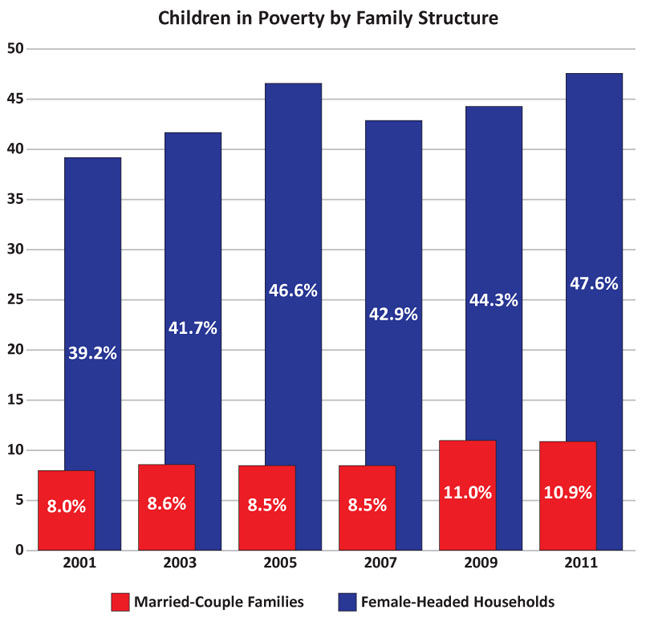
As this year’s Father’s Day approaches, the importance of strong father figures is being felt throughout the United States. Beyond what the eye can see, the statistical significance of growing up in a complete household compared to a single-mother household is nothing short of jaw-dropping.
More so than race, gender, or any other metric, the best predictor of a child’s eventual life outcome is the presence or lack of the father in the familial unit. This correlation flows into all areas of a child’s life, including areas such as success in academics, mental health, financial stability, and frequency of legal troubles.
Per a report from Fathers.com that concentrated statistics depicting the importance of a father figure, children who grow up in a fatherless household are four times more likely to be in poverty when compared to a traditional married couple. Furthermore, multiple studies from organizations including the U.S. Department of Health and Human Services concluded that a fatherless home environment is strongly correlated with future drug and alcohol abuse.

A graph from Fathers.com depicting the poverty rate among fatherless households
Within the same compilation of data were statistics showing that 71% of high school dropouts were fatherless, as well as the fact that children growing up in these households were twice as likely to commit suicide. It is clear that every metric available indicates that a child’s quality of life is closely intertwined with the presence of his or her father.
The conclusion from all of these data points is simple: children need their fathers. For young boys, the father typically plays a crucial role in enforcing discipline in the household. For girls, the father not only offers a sense of protection, but also sets an example for what she ought to expect from a man in the future.
Without a father, this role model figure is absent in the lives of children. These children often end up searching for answers in the wrong places when they should have found them within their families. As the head of a home, the father sets an example that children will subconsciously look to for the rest of their lives.
Fatherhood exists within the God-given complementary structure that a marriage between one man and one woman provides. A father and mother both offer unique but crucial aspects to a child’s life, so when one component is removed, the entire structure becomes unstable.
However, even in situations where the father is not present, every child’s life is infinitely valuable. No matter what the statistics may indicate, every human being bears the image of their Creator, which surpasses any worldly circumstances. Even if a child is born into the most disadvantageous situation possible, he or she still possesses the right to life. It is never the place of another person to make a decision on whether a child’s life is “worth living” based on the expected outcome of the given circumstances.
Unfortunately, this excuse is often used by pro-abortion advocates to justify the termination of a pregnancy. They make the argument that because it is likely a given child’s quality of life will not be high, an abortion is not only justified, but merciful. In the eyes of these advocates, a life that may be more difficult is a life not worth living.
Ultimately, though a strong father figure is important for a child’s development, no familial situation makes a life any less valuable. In this day an age, fatherhood is portrayed as a burden rather than a blessing, which could not be further from the truth. A bond between a father and his children is a treasure of infinite value that far outpaces anything this world can buy.
